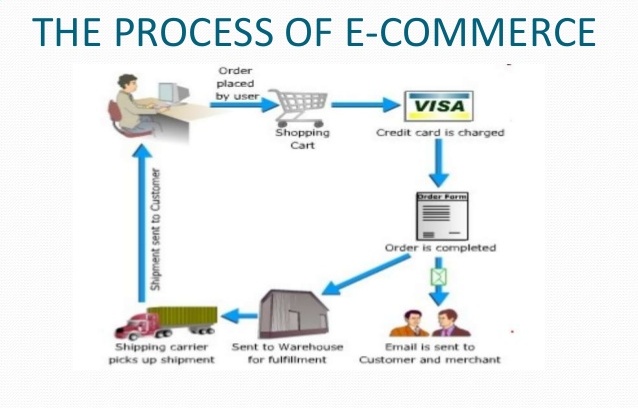6 Things to be remembered before raising Venture Capital Funding for your business
To commence a new startup an idea is the first step towards it. But for any business activity, capital is required to fuel the growth. There are basically many options for funding and raising venture capital (VC) is one of them. Here, in this article, we will let you know about the things to be remembered before raising VC funding.India has been done many things for their companies to raise fund. Let us read all about Venture Capital in detail:
What is Venture Capital funding?
The term Venture capital is a kind of Private equity. It is a form of financing basically provided by firms or funds to small, early-stage, emerging firms that are deemed to have high growth potential or which have demonstrated high growth (in terms of the number of employees, annual revenue, or both). In early-stage companies, there are more chances of investing funds by Venture Capital firms as it gets equity in exchange or an ownership stake, in the companies they invest in.
Usually, the Venture capitalists take on the risk of financing risky start-ups in the hopes that some of the firms they support will become successful. VC investment has generally high rates of failure because startups face high uncertainty. Mostly, startups are based on innovative technology or business model and they are mainly from the high technology industries such as information technology (IT), clean technology or biotechnology.
What are the people behind the Venture Capital Funding?
The people behind the Venture Capital are the entrepreneurs, financial wizards and the like set up venture capital funds which are recognized by the SEBI in India. Following are the two categories of the people in a venture capital fund:
- General Partners (GP)
- Limited Partners (LP)
What is the work of GP and LP?
- General Partners— GPs mainly serve to manage the fund and execute investments with the capital in order to return that capital to the LPs.
- Limited Partners— It is mainly based on the GPs proposal various different domains expertise investor will come and commit their money to the venture capital fund in India.
In simple words, the LPs invest into the venture capital fund and the GP manages the venture capital fund. Whereas the venture capital fund invests into the portfolio companies and it is governed by a contract between the GP and the LPs called the Limited Partnership Agreement (LPA). Hence, the LPA lays out all of the terms for managing the venture capital fund. These funds also have a contract with the General Partner to manage the fund.
How does VC Funding Work?
Venture Capital firms are making money through two terms:
- Management Fee earned by the GP’s
- Carried Interest earned by both GP’s as well as LP’s
Management Fee: It is the fees of the cost of having your assets professionally managed. VC funds only pay an annual management fee to the fund’s management company, as a form of salary and a way to cover organizational and fund expenses.
Carried Interest or Carry: If an investment is successful, a carry represents the share of the profits that is paid to the fund managers.
Six Things to be remembered before raising Venture Capital Funding for your business
Following are the questions which an entrepreneur must ask before raising VC fund for their business:
- What is the current size of the organization?
Analyzing the future growth of your company is the first and foremost thing in the “to do” list. As a result, come up with realistic projections for the upcoming years. It is based on the size of your company in the coming years, whether to go in for VC funding or not.
2. Should I consider venture debt?
The term Venture debt means an assortment of debt financing products for companies that are looking for backing from VC firms. Generally, venture debt is handed out by dedicated venture debt funds (VC firms) or banks. It will act as a complement to equity financing which represents a viable way to finance business from far fewer sources than would otherwise be required.
It is able to present a way to finance business with lesser dilution then equity and also does not typically require a valuation to be set for the business. Besides, VC firm investment does not require giving up board seats and have fewer governance requirements. Along with this, it also has to be kept in mind that like any other loan, venture debt should also be paid back with interest.
3. When should I raise venture debt?
Following are some situations where it appropriate to raise VC funding:
- When you have to replenish cash reserves of an enterprise to reach the next organizational milestone. For instances, if you have raised 50 crore rupees and need 20 crores more to hit the next major milestone.
- To fund capital expenses that are significantly and unavoidably larger, for example in case of acquisitions.
- In case it is predicted to take longer to hit the next organizational milestone then reserve funds to act as a buffer.
4. When should I avoid venture debt?
In some circumstances, the founder should reconsider or totally steer clear of venture debt. Following are some examples:
- It is not realistic to expect debt repayment
- Condition levied by the VC firm is too cumbersome and tedious.
5. Some key things to consider while raising venture debt
- Size of the loan
- The time period of the loan (When does it need to be repaid?)
- Loan price (what are the fees and interest rate?)
- The covenants (what are the financial and non- financial covenants?)
- The timing of the amortization (When do we start repaying the loan?)
6. What is the best way to run a venture debt fundraising process?
For getting a better understanding of the entire process it is best to interact with various banks and venture debt funds to analyze the capital currently existing in the organization. It is also recommended to hire a venture lawyer who has worked extensively on venture debt deals since the lawyer will be able to give the soundest advice on clinching the best possible terms.
List of active VCs in India
Following are the list of active Venture Capital in India:
- Helion Ventures
- Blume Ventures
- Indian Angel Network
- Kalaari Capital
- Sequoia Capital
Top 5 Companies of India that have raised VC money
-
Ola
In India, the most respected name out of all cab services has crossed well over Rs. 3299 crores putting it into one of the highest funded Indian companies today. It is handling over 1 million cabs booking requests per day. Its headquarters is situated in Bangalore and funded by a barrage of VC firms from Matrix Partners to Sequoia Capital and Accel Partners, this company is bound to go places.
-
Paytm
Paytm is considered one of the best mobile wallets in the business of India and is valued around 3-4 billion dollars and has a staggering user base of 100 million. Its headquarter is in Noida VC firms such as Intel Capital and Reliance Capital have dabbled in this company.
-
Flipkart
Flipkart is the well-known e-commerce brand in India and is highly capitalized being valued at almost over 15 dollar billion. Its headquarters are in Bangalore and has sold over 8 million items during its Big billion-day sale alone. There is a major acquisition that includes FX Mart, Appiterate, and AdIQuity. Morgan Stanley, Accel Partners, and a row of others have invested in this company.
-
Snapdeal
It is almost very close to Flipkart and is valued at half of Flipkart’s value of 6.5 billion dollars. Companies like Bessemer Venture Partners, Intel Capital, Saama Capital have invested in this company.
-
Grofers
It is a very popular Hyperlocal delivery platform. It has raised around Rs. 800 crores in its series D round. Companies like Sequoia Capital, Tiger Global, Softbank have funded this company.
Conclusion
In a nutshell, Venture capitalism is a new breed of an industry that is gaining momentum all throughout the world. The only motive of this kind of industry is to heavily invest growth phases of companies and reap high profits in the short run as the company grows rapidly. It was introduced as a unique business model that has the potential to create employment on a global scale by supporting the employers themselves leading to an all-around win-win situation. Hence, if you are a start-up and looking for VC money, now is the high time to spring into action.
For further more information regarding company startups, Company registration and more visit our website: LegalRaasta. Give us a call at 8750008585 and send your query on Email: contact@legalraasta.com. Our expert’s team will provide you the best advice ever.
Related Articles:
Angel Funding v/s Venture Capital









